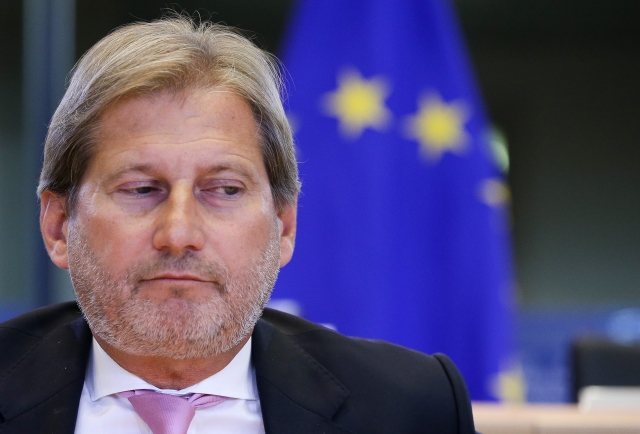EU Commissioner Hahn Says All Fine with Georgia's Visa-Free Regime
European Commissioner for European Neighborhood Policy and Enlargement Negotiations, Johannes Hahn, says everything is going well with regards Georgia’s visa-free regime with the European Union.
The Commissioner made the statement on Monday, ahead of the opening of the Ministerial in connection with the 10th anniversary of the Eastern Partnership in Brussels.
Hahn was asked a question regarding the possibility of the activation of the suspension mechanism, as there have been concerns from some EU countries regarding the increased number of Georgian asylum-seekers. However, he said everything is fine regarding the issue.
“Today, we celebrate ten years since the establishment of a very intensive partnership. Over the past few years, we have particularly activated the Eastern Partnership from a political point of view. In parallel, we have very individual bilateral relations with each country. In general, I think that we’ve given a big boost to economic development, communication, and contacts between people,” he said.
On 13 May 2019, the Foreign Ministers and representatives of Member States of the European Union, the High Representative of the Union for Foreign Affairs and Security Policy and the Foreign Ministers of the six Eastern European Partners met in Brussels to celebrate the 10th anniversary of the Eastern Partnership, to reiterate its importance, to celebrate its success and achievements so far, as well as to reflect on the future of our continued strategic and ambitious partnership.

EaP is a joint initiative involving the EU, its Member States, and six Eastern European Partners: Armenia, Azerbaijan, Belarus, Georgia, the Republic of Moldova and Ukraine. It is a specific dimension of the European Neighborhood Policy.
The Eastern Partnership aims at building a common area of shared democracy, prosperity, stability and increased cooperation. Additionally, bonds forged through the Eastern Partnership help to strengthen state and societal resilience: it makes both the EU and the partners stronger and better able to deal with internal and external challenges.
By Thea Morrison












